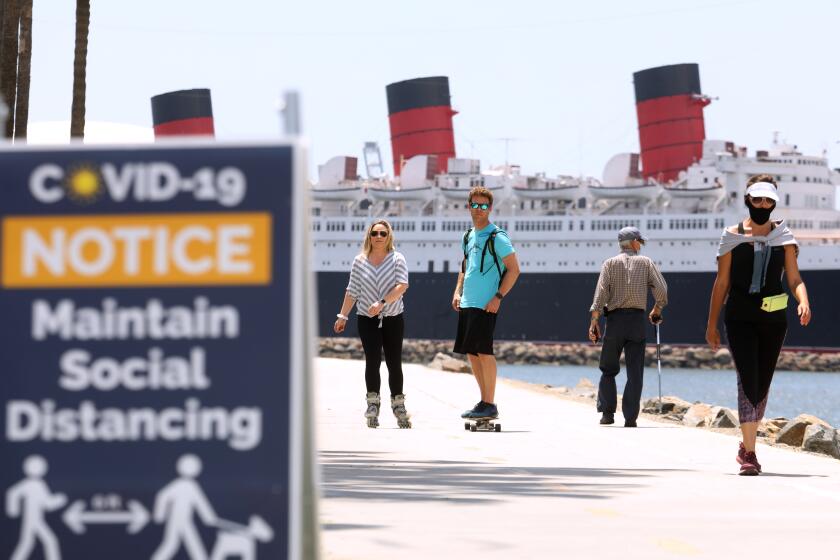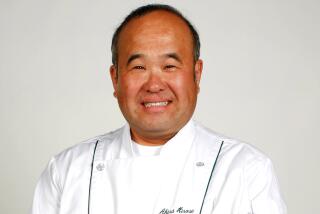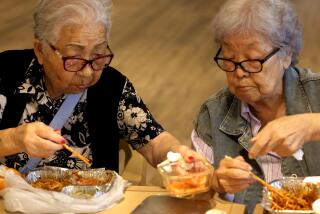Column: Olympian Mirai Nagasu finds hope in fight to keep parents’ restaurant from closing
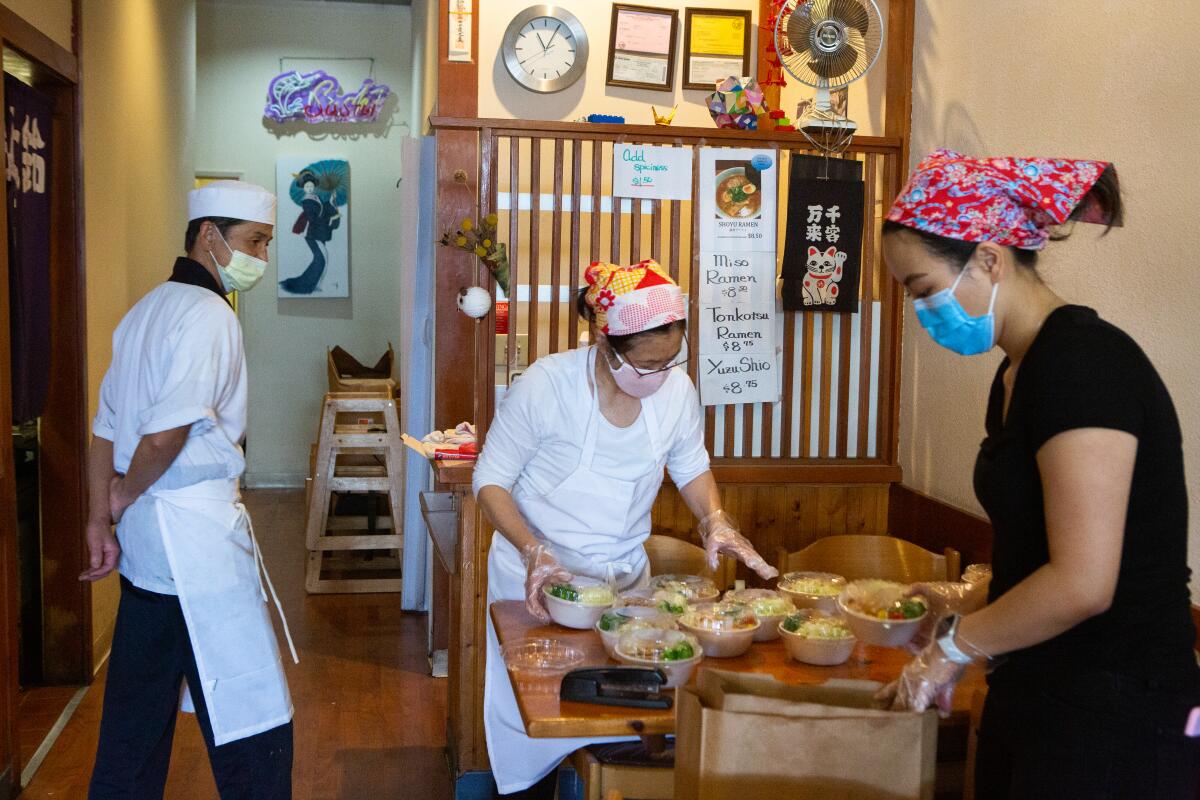
- Share via
Mirai Nagasu grew up in her parents’ restaurant, Sushi Kiyosuzu in Arcadia, sleeping in the storeroom and earning quarters for washing dishes when she wasn’t in school or taking figure skating lessons.
Her mother, Ikuko, and father, Kiyoto, didn’t always attend her skating competitions because they felt obligated to keep their business open and their employees working. Mirai respected that — and she learned much more from them than how to make an appetizing tuna roll.
Like thousands of other small businesses, Sushi Kiyosuzu was staggered when the COVID-19 pandemic hit and restaurants were forced to close their dining rooms. Ikuko and Kiyoto, who immigrated to the United States from Japan, couldn’t navigate the maze of government loan programs and were reluctant to tell their daughter how dire their situation was.
“They try to protect me from a lot of hardship. I think it’s more like they want to stay strong and be strong for me because I think that they know I would worry for them,” said Nagasu, who became the first American woman to land a triple axel jump in the Olympics while leading Team USA to a bronze medal at Pyeongchang in 2018, eight years after she finished fourth in the Vancouver Games.
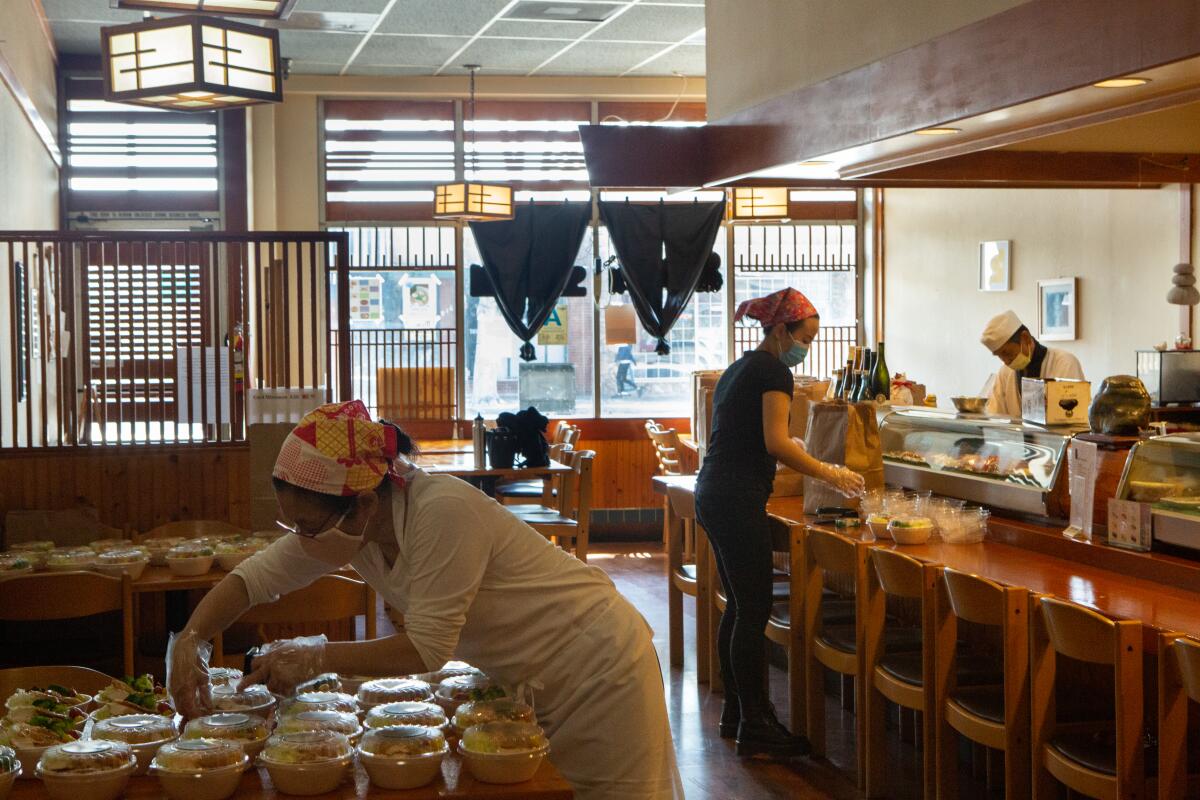
Her need to be strong for her parents kicked in when she learned they had let go all but one employee. Through a friend of a friend, she discovered a restaurant relief initiative called the Power of 10, which launched last month in Washington, D.C., and funds restaurants so they can rehire staff and cook food for healthcare workers and others affected by the pandemic.
The Nagasu family’s restaurant on Tuesday became the first Los Angeles-area business to participate in the initiative, starting with a plan to cook 500 meals this week and soon double that number.
From Boston, where she has been self-isolating after consulting doctors there about a skating-related hip injury, Nagasu recruited some of her high school friends back home to help deliver the meals. “We’re excited that it’s starting in L.A. with my parents’ restaurant,” she said, “and we hope it’s an initiative that we can start to offer throughout the entire country.
“That’s a big goal, a huge goal, and it’s a little overwhelming. But at the same time, going to the Olympics was a big goal for me, and to immerse myself in an equally big goal is something that I enjoy. To be able to focus on my parents more and to be able to help them, it’s a nice change.”
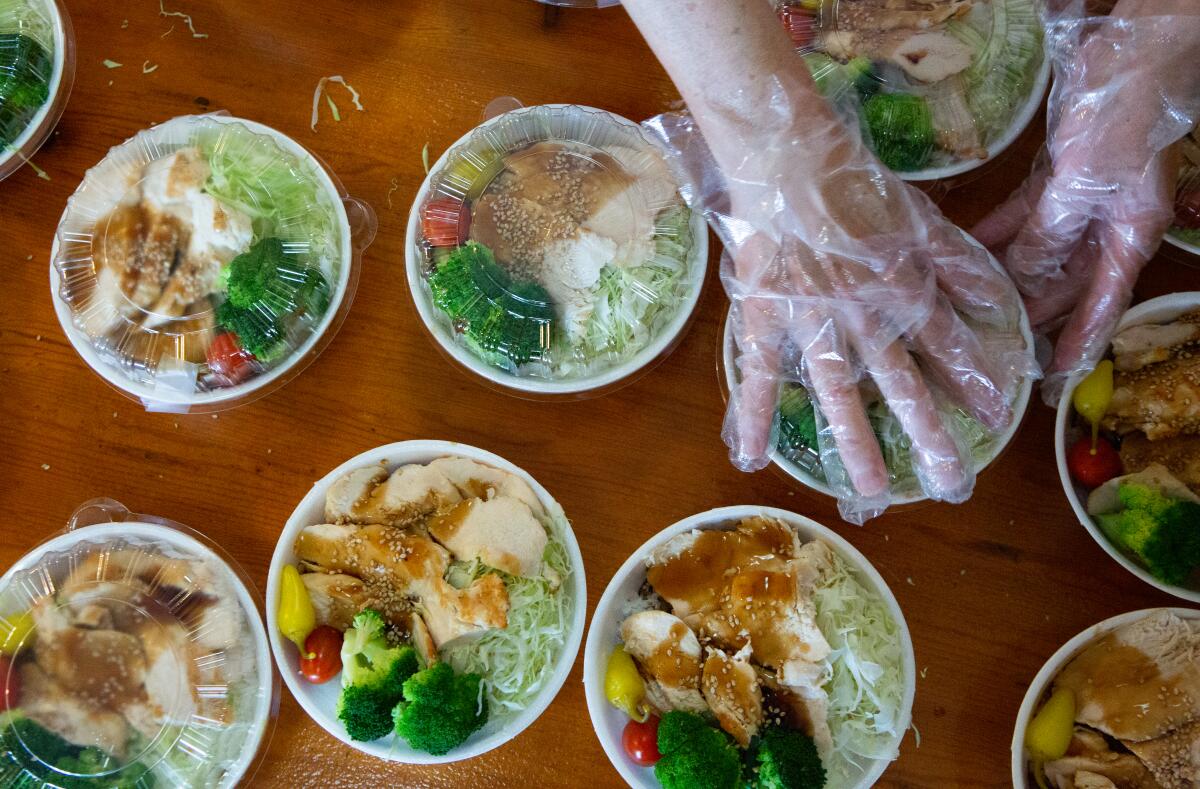

Erik Bruner-Yang, a Washington, D.C., chef and restaurateur who organized the Power of 10 project, said the initiative had raised $200,000 from individual contributions and foundations. In three weeks, 10,000 meals were delivered in the area to a hospital, a children’s center, a homeless shelter in Virginia and a residence for elderly Asian immigrants, in addition to some drop-offs in low-income areas. Individuals can contribute by purchasing one to 1,000 meals at $10 each, and the money funds the food and restaurant workers’ salaries. The restaurants don’t have to repay the grants.
Until the federal government’s Paycheck Protection Program ran out of funding, Bruner-Yang said, “We were kind of hoping for a trickle-down solution. But the reality is, there are so many people that always get missed. The only way for small independent operators to move forward is to create our own social safety net and help trickle it up. The more money you can keep in your community, the longer it’s going to be successful.”
After ensuring the Nagasus’ restaurant could make enough meals and deliveries for four weeks, Bruner-Yang saw it as a perfect first California outpost. “We found an amazing partner with a great story that fits our mission to help independent small operators, especially mom-and-pop restaurants who would have a hard time navigating through this time period. It all kind of really lined up,” he said.
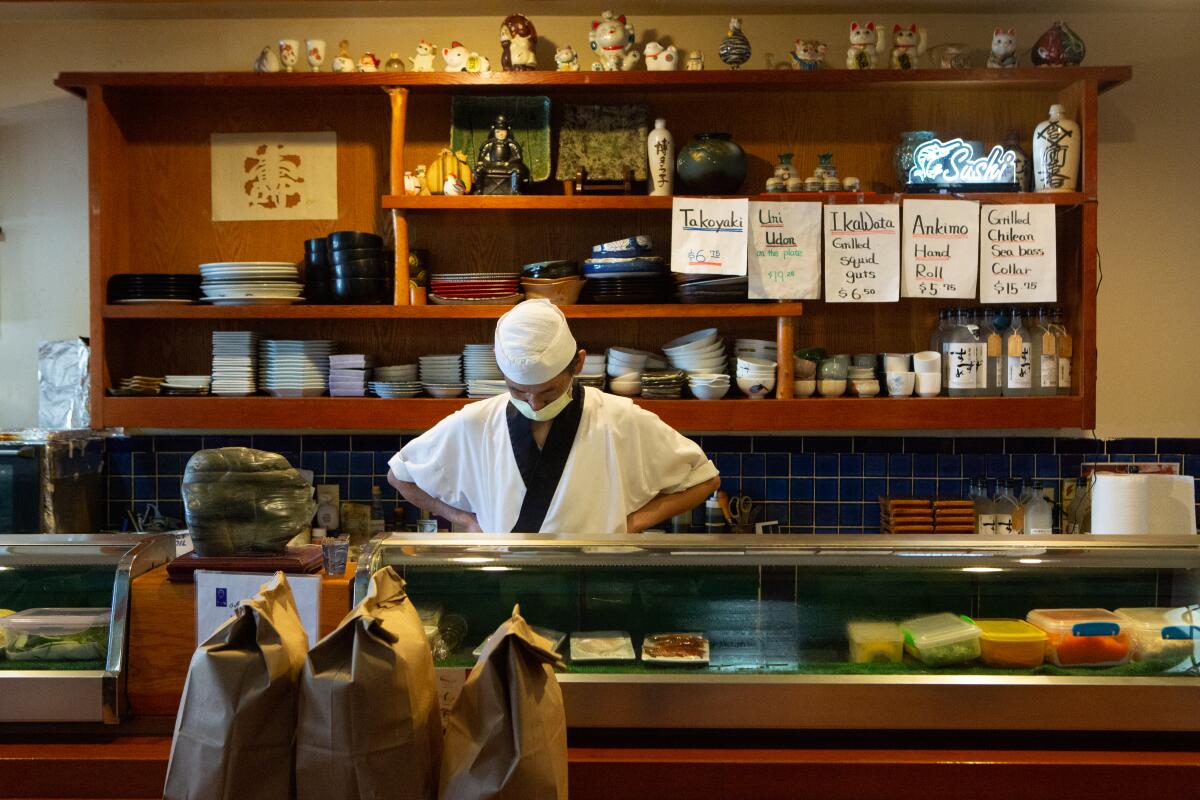
Bruner-Yang said the situation was “almost serendipitous” since he and Mirai Nagasu shared a similar background.
“I’m an immigrant from Taiwan, and our stories are so similar of our parents doing whatever it took to make our dreams a reality. I think that our ability to connect through social media and to have this program in place supports our parents’ generations. And there’s so much information coming out. How are people like Mirai’s parents supposed to figure out how to get through this without the support of people like us who are savvy and up to date and can help out?”
The meals from Sushi Kiyosuzu are packed in individual containers that will be handled as little as possible to avoid potential spread of COVID-19. Her parents planned to start by serving chicken teriyaki and later serve salmon and vegetable rolls and other items. Meals containing raw fish weren’t included because the containers might sit a while before the recipients can eat. “I’m sure I’ll be involved in choosing because every five minutes they’re texting me, ‘How about this idea?’” Mirai said.
The meals are targeted for the area where she grew up. Clearly, she inherited her parents’ admirable sense of responsibility. “I went to elementary school, middle school, and high school in Arcadia,” she said, “and to be able to do something for the community, especially when I saw how much support they gave me when I went to both Olympics, is something that means a lot to me.”
Some smaller California communities want to begin easing stay-at-home restrictions, saying they have made enough progress against the coronavirus.
More to Read
Go beyond the scoreboard
Get the latest on L.A.'s teams in the daily Sports Report newsletter.
You may occasionally receive promotional content from the Los Angeles Times.

